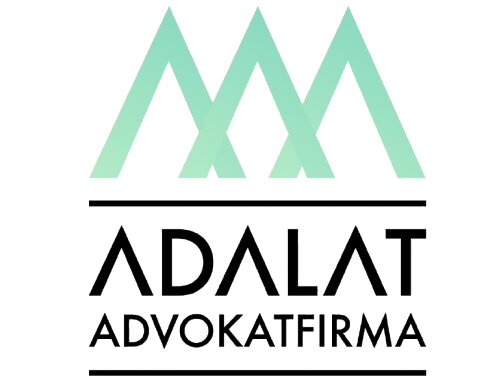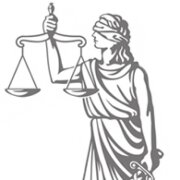Best Antitrust Litigation Lawyers in Norway
Share your needs with us, get contacted by law firms.
Free. Takes 2 min.
Or refine your search by selecting a city:
List of the best lawyers in Norway
About Antitrust Litigation Law in Norway
Antitrust litigation in Norway is a branch of law that addresses competition issues such as cartels, abuse of dominant market positions, and anticompetitive agreements. The goal of antitrust law is to promote fair competition for the benefit of consumers, businesses, and the economy as a whole. Norway implements its antitrust rules on both a national and an EEA (European Economic Area) level, which means that Norwegian rules are closely aligned with those of the European Union. The legal framework ensures that companies operate in a competitive environment and that any activity which might hinder competition can be challenged through administrative or legal processes.
Why You May Need a Lawyer
Antitrust litigation can be complex due to the technical nature of competition law and the significant financial and reputational risks involved. Common scenarios where individuals or businesses may require the assistance of a lawyer include:
- Being investigated by the Norwegian Competition Authority for suspected anticompetitive behavior
- Challenging or defending against fines imposed for breach of competition law
- Seeking damages against competitors who have engaged in illegal practices
- Needing guidance on competition compliance when entering into agreements or mergers
- Whistleblowing or responding to leniency programs related to cartels
Given the financial penalties, potential criminal liability for individuals, and the reputational stakes, early legal guidance is crucial in antitrust matters in Norway.
Local Laws Overview
Norwegian antitrust law is primarily regulated by the Competition Act of 2004. This Act prohibits:
- Agreements between undertakings that restrict competition, such as price-fixing or market sharing
- Abuse of dominant market positions, such as predatory pricing or refusal to supply
- Specific mergers and acquisitions that significantly reduce competition
The Norwegian Competition Authority oversees the enforcement of these rules. Significant cases might be appealed to the Competition Tribunal or Norwegian courts. Norwegian regulations closely mirror EU competition law, and the Authority has the power to investigate, issue fines, and order behavioral changes. Companies may apply for leniency in cartel cases, potentially reducing penalties if they cooperate with investigations.
Frequently Asked Questions
What is antitrust litigation?
Antitrust litigation involves legal actions relating to the enforcement or defense of competition laws, such as challenging restrictive agreements or seeking damages for anticompetitive behavior.
Who enforces antitrust laws in Norway?
The Norwegian Competition Authority is responsible for enforcing antitrust laws, conducting investigations, and imposing penalties or corrective measures.
What are the main types of prohibited conduct under Norwegian antitrust law?
Prohibited conduct includes cartel activities (such as price-fixing), abuse of dominant market positions, and certain mergers that would harm competition.
Can individuals be held liable for antitrust violations in Norway?
Yes, both companies and individuals (such as executives or managers) can be held liable, and individuals may face criminal penalties in serious cases.
How can a business ensure compliance with antitrust laws?
A business should implement compliance programs, regularly review contracts and practices, and seek legal advice before mergers or joint ventures to prevent violations.
What happens during a competition authority investigation?
The authority may request documents, conduct dawn raids, and interview staff. Businesses have the right to legal counsel and to respond to any accusations of wrongdoing.
Is it possible to appeal decisions by the Competition Authority?
Yes, decisions can be appealed to the Competition Tribunal and, ultimately, to Norwegian courts for judicial review.
What is a leniency program?
Norwegian law provides for leniency, allowing companies involved in a cartel to reduce or avoid fines if they self-report and cooperate fully with investigations.
How are damages for anticompetitive conduct calculated?
Damages are typically calculated to compensate for the harm suffered as a result of the anticompetitive conduct and may include loss of profits or overcharges.
Are there special rules for mergers?
Yes, mergers and acquisitions that may significantly restrict competition must be notified to the Authority. The Authority can approve, block, or impose conditions on such transactions.
Additional Resources
For more information or specific assistance, consider consulting the following organizations:
- Norwegian Competition Authority (Konkurransetilsynet) - the main body for enforcement and guidance
- Norwegian Ministry of Trade, Industry and Fisheries - sets policy and legislative framework
- Competition Tribunal (Konkurranseklagenemnda) - handles appeals against the Authority's decisions
- European Commission (for cross-border or EEA-related matters)
Specialized law firms and legal aid services in Norway also offer advice and representation in antitrust cases.
Next Steps
If you believe you are facing an antitrust issue or are subject to an investigation, you should:
- Consult an experienced antitrust lawyer as soon as possible - early advice can help protect your interests
- Gather and preserve all relevant information and documentation related to your case
- Follow any legal instructions received from authorities and ensure you understand your rights and obligations
- Review your company's compliance programs to prevent further risks
- Consider alternative dispute resolution methods if available
Taking timely action and obtaining professional legal guidance is essential to effectively navigate antitrust litigation in Norway.
Lawzana helps you find the best lawyers and law firms in Norway through a curated and pre-screened list of qualified legal professionals. Our platform offers rankings and detailed profiles of attorneys and law firms, allowing you to compare based on practice areas, including Antitrust Litigation, experience, and client feedback.
Each profile includes a description of the firm's areas of practice, client reviews, team members and partners, year of establishment, spoken languages, office locations, contact information, social media presence, and any published articles or resources. Most firms on our platform speak English and are experienced in both local and international legal matters.
Get a quote from top-rated law firms in Norway — quickly, securely, and without unnecessary hassle.
Disclaimer:
The information provided on this page is for general informational purposes only and does not constitute legal advice. While we strive to ensure the accuracy and relevance of the content, legal information may change over time, and interpretations of the law can vary. You should always consult with a qualified legal professional for advice specific to your situation.
We disclaim all liability for actions taken or not taken based on the content of this page. If you believe any information is incorrect or outdated, please contact us, and we will review and update it where appropriate.
Browse antitrust litigation law firms by city in Norway
Refine your search by selecting a city.















